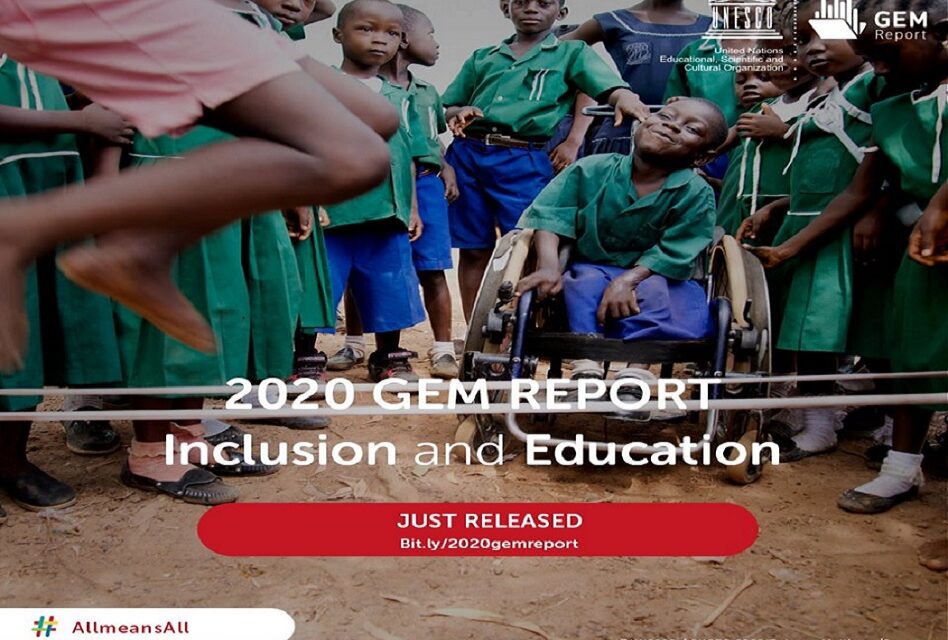The GEM 2020 Report says fewer than 10% of countries have laws that help ensure full inclusion in education. The GEM 2020 Report dedicated to Inclusion in Education was launched on June 23 in a Webinar.
To complement its online database on education Inequalities, the Worldwide Inequalities Database on Education (WIDE), in January, 2020, the GEM 2020 launched a new online monitoring tool “Scoping Progress in Education” (SCOPE) telling the story behind SDG 4 data using the latest in online publishing and data-visualization technologies. A complementary new online platform “Profiles Enhancing Education Reviews” (PEER) prepared by the GEM Report has been launched describing countries’ laws and policies on inclusion and education.
With the view to supporting more inclusive education and towards the 2030 targets, the report puts forward 10 recommendations, calling for a paradigm shift from seeing diversity as a problem to seeing it as an opportunity. The recommendations call for:
- WIDENING the understanding of inclusive education, including all learners from an early age and across education sectors.
- Targeted FUNDING for those left behind and ensure EARLY interventions for the disadvantaged
- SHARE expertise and resources to distribute them more equally and have flexible mechanism and incentives in place to provide adequate expert support.
- ENGAGE with communities and parents in a meaningful way and encourage grassroots initiatives and everyone’s contribution to the design of policies and curricula.
- Ensure COOPERATIONof all governmental levels – national, regional. Local and across sectors and departments of ministries responsible for inclusion.
- Ensure DIALOGUE between governments and NGOs, and allow CIVIL SOCIETY representatives to monitor progress in the commitments made at central level.
- Apply UNIVERSAL DESIGN to meet learners’ diverse needs in a flexible and accessible learning environment, with formative assessment methods which appreciate different learning styles.
- Support TEACHERS through education and training provision (initial education or professional development) that helps them meet the needs of a diverse classroom.
- Collect DATA on and for inclusion to help define policies and funding priorities, while ensuring no learner is harmed in the process.
- Learn from peers through different COMMUNITIES OF PRACTICE: teacher networks, national, regional or global forums, etc.
Find it here: Bit.ly/2020gemreport
